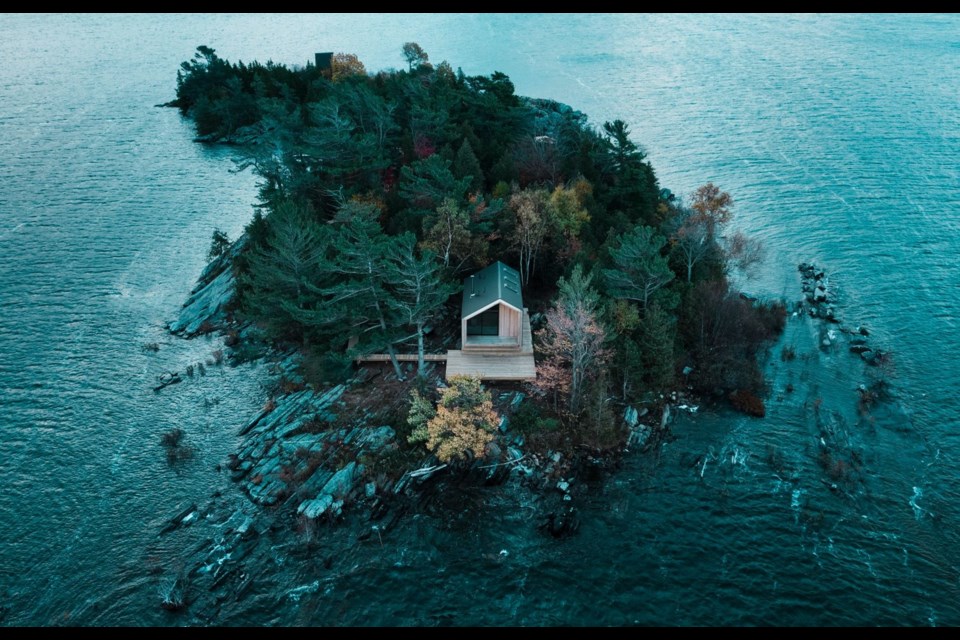A pair of childhood friends have found Vancouver the perfect place to launch a unique business.
The Backcountry Hut Company's (BHC) niche is fairly specific; they've created cabins that can be put together quickly and easily, and delivered virtually anywhere in the world.
Wilson Edgar, who brings experience outdoors (and was notably president of the BC Mountaineering Club), and Michael Leckie, an architect, founded the company. They saw how difficult it was to build a cabin away from normal infrastructure, like roads.
"I thought if someone could put together a kit of a unique set of parts and pieces that went together kind of like Lego and at the same time had an IKEA-like instruction book, it would make the process easier to execute some sort of cabin project," Edgar says.
And because of the simple assembly and package, they can be sent anywhere.
"They've been assembled on top of mountains, at the end of lakes, on islands," Edgar says.
There are three traditional cabin platforms and a sauna. They range from the simple (an A-frame) to a more complex two-storey structure. The A-frame can be put together within a week by a handful of people using just hand tools.
While the pieces are unique, the materials aren't difficult to get a hold of, meaning repairs are easy enough, Edgar notes. The intricate design that's simple enough for people to put together is the key.
"We designed a kit using pretty much standard building materials you could get at any lumber store," he says.
That said, the design gives it a much more modern and sleek look than something that looks like it came from a hardware store.
"They look and see a cabin, but it's also this magnificently detailed and refined modern structure," Edgar says.
He notes that part of the design ethos is to create structures that work in the context of their environment, instead of standing out in an unnatural as some cabins and chalets have in the past.
"They don't hinder on nature."
The pair worked with a Vancouver Island-based crew to create the pieces.
"We worked together to figure out the requirements and develop out the system," Edgar says. "We brought in different parties to look at the engineering, the enveloping of the structure and to make sure it all worked."
That simplicity includes delivery. A smaller system shows up on a single 53-foot flatbed trailer. If a truck and trailer can't get to the final destination, there are other options. On occasion, that means a barge or helicopter is brought in the get the materials where they have to go. Since no heavy equipment is needed, it doesn't require many trips.
And it takes a fraction of the time to go from concept to build.
"An average cottage takes two years to build because of the short build seasons and tight timelines and the back and forth," Edgar says. "Instead, (with BHC), you just ship out the package."
Once the package arrives it takes between a week and a month to put together.
It also means budgets are easier to estimate since many of the costs are already known.
"We're trying to control some of that cost and you know as a client what it's going to look like before you even start," Edgar says.
Thanks to their system, they've put more than 40 cabins in place in the last few years.
"We get to build in some incredible places," he says. "BCH structures are in Tahoe, the Catskills, Shuswap Lake, the Gulf and San Juan Islands."
The pandemic has meant more people are looking for ways to escape the city, Edgar says, and the cabin-kit option is something he expects to keep growing. He notes the business idea owes a piece of its existence to the city the two live in.
"Michael and I have both found a home in this city and we find it's a place where there's a tremendous about of innovation and creativity across all industries," he says of Vancouver. "Therefore, it's a great place to have a company like the BCH."


.jpeg;w=120;h=80;mode=crop)
